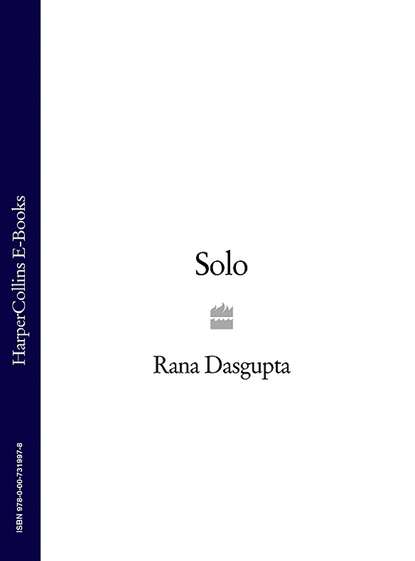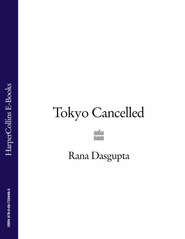По всем вопросам обращайтесь на: info@litportal.ru
(©) 2003-2024.
✖
Solo
Автор
Год написания книги
2018
Настройки чтения
Размер шрифта
Высота строк
Поля
A note arrived from Ulrich’s old friend, Boris. The two had not communicated for three years. It said, I know you are back. Do not come tosee me. Too dangerous now. Greetings.
After days of uproar and terror, they produced the men responsible for the bombing and hung them in the square. People climbed on each other’s shoulders to see the gallows. The explosion had put their minds in a spin. They could not stop looking at the cathedral’s open roof: it was like a festering cavity from which society’s bad smells drifted up. They would not go to their homes, and the streets were full of crowds and fights and eruptions that the army had to quell.
Ulrich followed his mother’s instructions, and went to see Mr Stefanov, who ran a leather company. The old man received him in a mighty drawing room. He was dressed in an immaculate suit and tie and he sat in a wheelchair.
‘Your mother seemed desperate, so I agreed to see you. Your father and I were friends once, and I stay loyal to things like that. I need a bookkeeper.’
Ulrich began work at the leather company. He sat at a table facing rows of junior clerks, whose work he was supposed to supervise; but the table was not enclosed like a proper desk, and his legs were fully on display underneath, which, he felt, diminished his authority. High up on the wall opposite him was a mirror, angled down in such a manner as to allow him to monitor his subordinates’ activities without leaving his chair. In the top of this mirror, his disembodied legs were also reflected.
He heard nothing more from Boris, and resolved finally to pay him a visit, in spite of the note he had sent.
The grand house looked exactly the same, and it was moving to ring the bell again after all these years. The woman who opened the door was an echo of someone lost, and he realised it was Boris’s sister, grown up from a girl. She was wearing a short dress in the Paris fashion.
‘Stop staring and come in off the street,’ she said. ‘You shouldn’t be here. They’ve already come for him once. Every time the doorbell rings …’
She shut the door behind him, and they stood facing each other inside.
‘How was Berlin?’
‘Fine.’
She looked at him. His shirt, his hair. She said,
‘You don’t know what’s been happening. Since the uprising, they’ve killed so many of our friends. Every day it’s another pointless tragedy. I don’t hold with this communism. I think all their dreams are absurd fantasies. No unemployment, no hunger. They are idiots, and they’re dying for nothing.’
He agreed. She brightened.
‘I still play the piano. When things have calmed down, I’ll play for you.’
She went to fetch Boris from his room.
Disappointed as he had been to curtail his studies and return home, Ulrich had consoled himself with the idea that he had now seen everything the modern world could offer, and his prestige in this provincial city would be greatly enhanced. He looked forward to the gap being closed with Boris, who had been stuck in Sofia all this while. He pictured his friend sitting awestruck while he told him his stories of metropolitan life.
But as soon as Boris appeared in the hallway, Ulrich realised it would not be like that at all. Boris had become mature and imposing, and evidently his character’s growth was in full proportion to Ulrich’s own. Ulrich fell back instantly into looking up to him.
Boris put his arms around him firmly.
‘Welcome back, my friend,’ he said. ‘What a time to come!’
He stepped back appraisingly.
‘You’ve become thinner since I last saw you. But less fragile. It’s good.’
Boris’s hair was longer than before, and so uneven he must have cut it himself, but his tie was neater and he stood more erect. He and Magdalena were a handsome pair: tall, with the same blue eyes and dark hair from their Georgian mother.
Boris took his sister’s hand.
‘Have you seen Magda? How grown up she is these days!’
She fought her brother off, cheeks red and hair tossing.
‘Don’t talk about me like that!’
Boris took Ulrich’s elbow and led him to his room. Books and paintings were stacked everywhere. It smelt of cigarette smoke, and the floor was covered with electrical components. There was another man sitting in the armchair.
‘This is Georgi. He and I are trying to make a radio.’
Georgi was a big man with features that Ulrich found coarse. His smile uncovered broken teeth.
‘We can’t make it work,’ said Boris. ‘They send us instructions from Moscow but you can’t get the parts in this damn city.’ He moved a pile of books. ‘You can sit here. How was Berlin?’
Ulrich said,
‘Fine.’
Boris filled three glasses with vodka.
‘Just when we’re all trying to escape, you come back. I can’t believe it. No one wants to be in Sofia. There aren’t enough steamships for all the peasants who are running off to Argentina. Even Georgi and I are planning to go somewhere for a while. Paris or Moscow. There’s no point waiting here to be killed. They killed Geo Milev last week, you know that?’
‘No, I didn’t.’
‘As ever, Ulrich, you don’t know anything. The police took him in and strangled him in a basement. That’s how we treat our great men in Bulgaria. Did you get any news in Berlin? You know the Agrarian government was overthrown by the fascists? And now it’s war?’
‘I know all that.’
‘In their immense wisdom, the Bulgarian Communist Party decided that their sibling feud with Stamboliiski and the Agrarians was more important than opposing the fascists. They didn’t raise a fingernail to help Stamboliiski when the fascists took over. They bear a lot of the guilt for his murder. He was a decent man.’
‘His head was sent to Sofia in a tin,’ added Georgi simply.
‘So then they realised – quelle surprise! – that things were much worse now than they had been before. With epic dullness they decided they needed some heroic offensive against the fascists – better late than never! – so they planned this bomb, which any fool could have seen was pure suicide. Now the government is purging the entire country. When they can’t find the person they’re looking for, they just destroy whole towns. Remember Petar, the one in your class who played football? Shot down yesterday in the street while he was out with his mother. Just like that.’
Boris’s fingers moved as he talked, but his body remained still. He was in complete command of his words, which lay at rest until needed, then formed themselves into deadly beams of coherence. Ulrich realised he would now go to great lengths to avoid an argument with him.
‘On top of all this, the Macedonian revolutionaries are going crazy. Assassinations every week. We all sympathise with their cause but they’re making things much worse.’
On the wall was a framed sketch of Boris. The artist had drawn only one continuous line, but in its charcoal loops and zigzags it captured exactly the way he looked. There were a number of photographs of Boris and friends in theatrical make-up.
‘You saw this?’ said Boris, noticing his gaze. He passed the photograph down to Ulrich. ‘That’s me playing a Balkan shepherd. I was acting in this theatre group until it became too dangerous. Geo Milev designed the stage set full of skyscrapers. The shepherd wanders in among the colossal geometry with his stubble and his flute, and the sky is the only thing he can recognise.’
In another part of the house, Magdalena began to play the piano.
‘The prime minister has told the British, French and Americans that the whole problem is caused by communist terrorists, which is just what they want to hear. They’ve given him seven thousand extra troops to murder us with. I suppose we should be flattered, eh, Georgi? You see what firepower they need to defeat the thoughts in our heads?’
Georgi said, with a thin-lipped smile that Ulrich found condescending,
‘How is it you don’t know all this, Ulrich?’
‘He’s been in Berlin for three years,’ said Boris. ‘Studying chemistry. He doesn’t like politics.’
Другие электронные книги автора Rana Dasgupta
Tokyo Cancelled




 3.5
3.5






